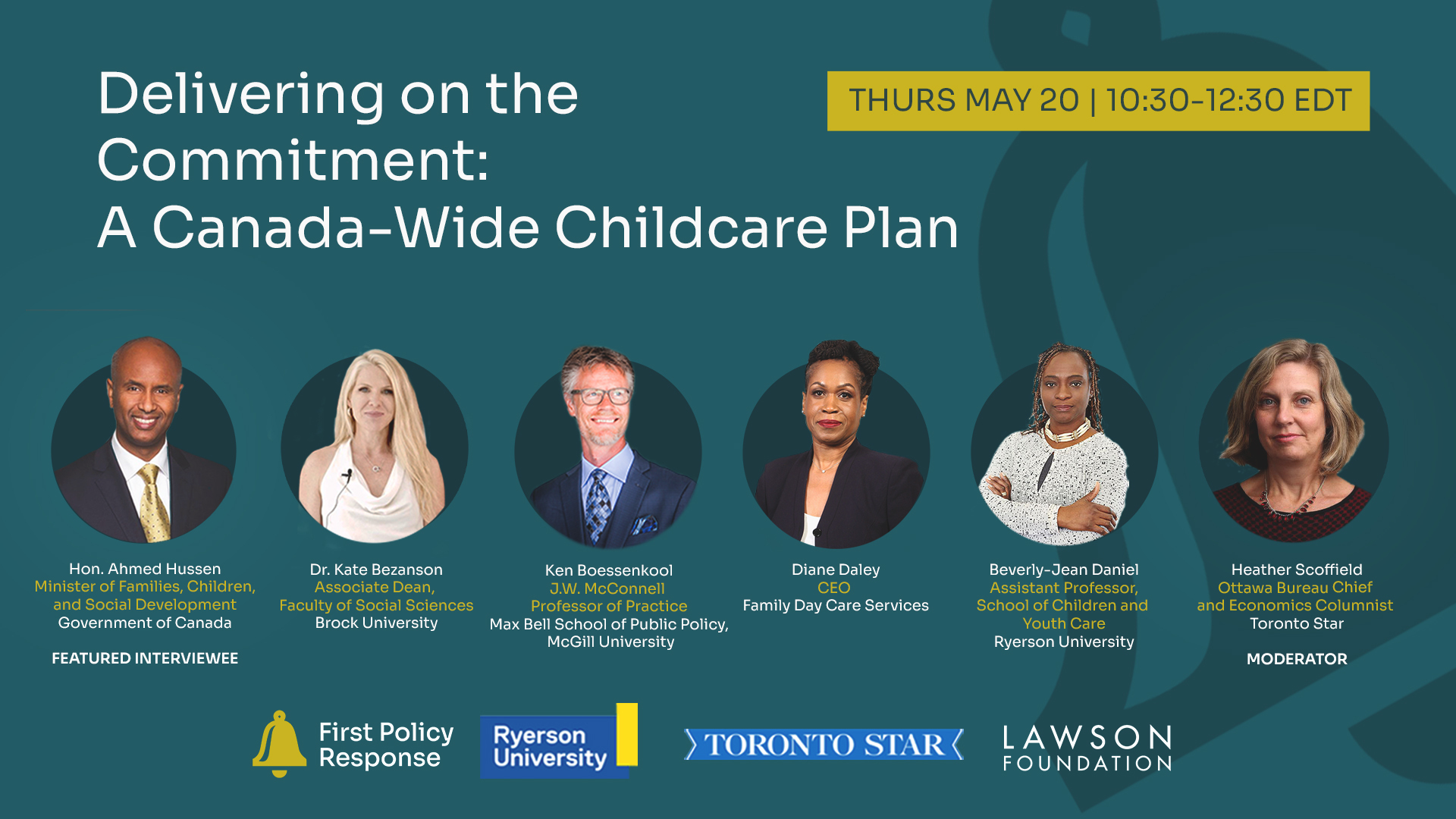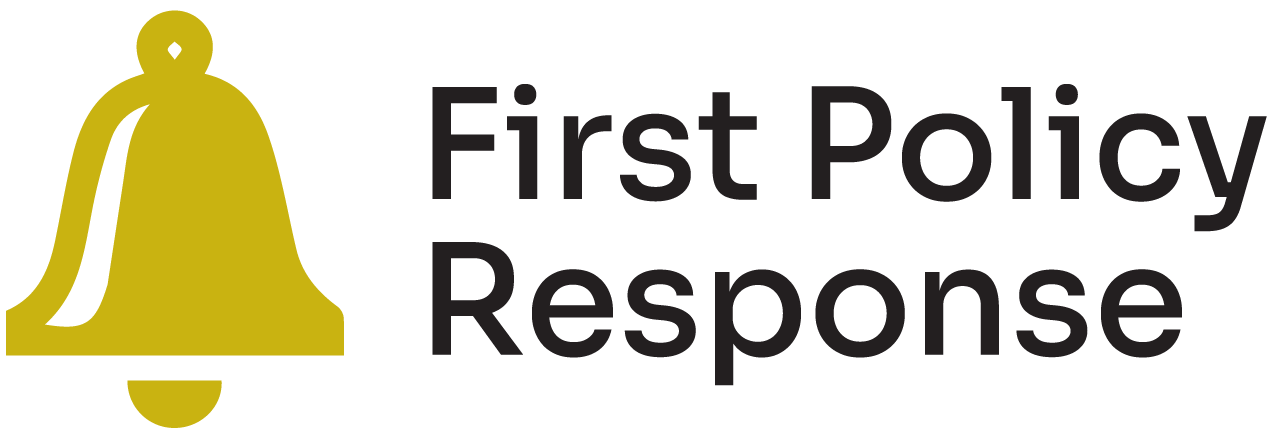
With the COVID-19 pandemic highlighting the need for accessible and affordable childcare, the federal government promised $30 billion over five years to create a Canada-wide childcare system in the 2021 federal budget.
On May 20, First Policy Response, in collaboration with the Toronto Star, held a video town hall convening experts from the ranks of front-line workers, policy and academia to discuss how to implement a Canada-wide childcare plan. The discussion was moderated by Heather Scoffield, Ottawa bureau chief and economics columnist for the Toronto Star, joined by featured guest The Honourable Ahmed Hussen, Minister of Families, Children and Social Development.
Hussen said that a post-pandemic economic recovery cannot happen without a serious plan to include women in the economy, and that no plan will be serious unless it includes access to quality and affordable childcare. “This is not just smart social policy, but also much-needed economic policy,” he said. A national childcare system will focus on four key principles: accessibility, affordability, quality and inclusivity.
The four panellists offered a variety of insights on a Canada-wide childcare plan, touching on themes of equity, diversity, quality of care and fair compensation for early childcare educators (ECEs).
Ken Boessenkool, J.W. McConnell Professor of Practice at the Max Bell School of Public Policy, said that while the federal government has set a great aspiration with its childcare commitment, it’s now up to the provinces to let the federal government know how they want to design their system. He cautioned that a top-down, one-size-fits-all approach will not work.
Beverly-Jean Daniel, an Assistant Professor at Ryerson University’s School of Child and Youth Care, stated that those most vulnerable — including racialized and low-income children and ECEs — must not be left behind. Daniel said key questions for developing the childcare system should include: “Who are the frontline workers?” and “Where are they geographically?” The government should be asking these questions to ensure parents with the most need have access to these supports, she said: “The government needs to make sure those who are going to be impacted are literally at the table.”
The panellists agreed on the importance of community members being involved in decision-making, and that the well-being of the end users — the children — needs to be a priority.
Kate Bezanson, an Associate Dean in the Faculty of Social Sciences at Brock University, noted the government’s contribution is the biggest commitment Canada’s childcare sector has ever seen. In the short-term, the government committed to funding a 50 per cent fee reduction by the end of 2022, which will put money back into the families’ pockets right away. Long-term, it will help our economy grow its way out of this crisis, she said.
Diane Daley, the CEO of Family Day Care Services, touched on the need for childcare to be flexible to meet the needs of parents coming out of the pandemic. Daley added that compensation is a critical issue for ECEs because their true value is not currently being recognized. Bezanson added that the interests of parents, largely mothers, are being pitted against the interests of ECEs, a predominantly female-dominated field. This current kind of market approach to childcare fails women, the economy and employers, she said.
Reflecting on the panel discussion, Hussen reiterated that funding should go to regulated childcare spaces. He said the government is not pursuing a top-down approach, but rather is focused on collaborating and negotiating in good faith with provinces, territories and Indigenous communities.
One of the main motivations for establishing this Canada-wide childcare system, he said, “is to really provide choices for parents, especially women with children — to have access to paid work, to have access to the opportunity to start a business, go back to school or to join the workforce.” Hussen said he was optimistic the system would aid in closing the gender pay gap and give all children the opportunity to get the best start in life.
To view a transcript of the event, click here.
This event was generously supported by the Lawson Foundation.



